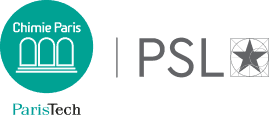
June 5 – 2 pm – Amphi Charpak, ESPCI Paris-PSL. Bio-inspired Buoyant Gas Bubble-Encapsulating Microcapsules (GEMs), Daeyeon Lee Chemical and Biomolecular Engineering, University of Pennsylvania, Philadelphia, USA.
Many aquatic microorganisms, such as cyanobacteria and green algae, rely on intracellular gas vesicles—protein nanostructures with tunable collapse thresholds—to regulate buoyancy, navigate light gradients, and avoid predation. Similarly, vascular plants use xylem cavitation as a water-stress response, harnessing pressure-driven gas formation to regulate transport under extreme environmental conditions. Inspired by these strategies, we have developed gas bubble-encapsulating microcapsules (GEMs), synthetic, buoyant microcapsules, via osmotic cavitation. I will discuss themechanics and kinetics of bubble growth. These GEMs represent a new class of soft matter systems that can be used for therapeutic delivery, environmental sensing, or materials actuation under mechanical load. Critical to understanding and optimizing the structure–function relationships in GEMs is the ability to generate large libraries of double emulsions with finely tunable diameter and shell thickness. To accelerate the discovery of GEMs and other cell-like droplet architectures, we have developed an artificial intelligence (AI)-empowered Automated Droplet Library (ADLib) generator. This platform integrates a convolutional neural network-based object detection model with real-time feedback control, enabling fully autonomous and rapid generation of droplet libraries. Capable of producing 25 distinct monodisperse double emulsions within 2–3 hours—down from a month of manual effort—ADLib monitors droplet morphology every 171 milliseconds and adjusts flow conditions with reaction times faster than those of humans. With a user-friendly graphical interface and robust hardware-software integration, ADLib eliminates the need for constant operator oversight, significantly increasing experimental throughput, precision, and reproducibility. By coupling bioinspired materials design with AI-enabled microfluidic control, this work presents a promising pathway toward functional microstructures that actively respond to their mechanical environment, much like their biological counterparts.
- This évènement has passed.
